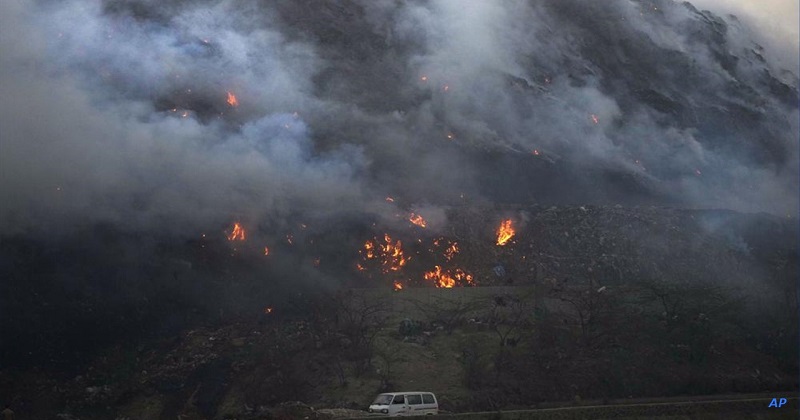New Delhi - A record-shattering heat wave in India has reduced wheat yields, raising a question on how the country will balance domestic demands as well as increase exports in the wake of the Russian-Ukraine war.
The heat in March, the hottest India experienced as recorded since 1901, has stunted crops. Wheat which is very sensitive to heat is planted in such a way that when its kernels mature and ripen, it is a cooler spring. The quick switch from a cooler atmosphere to unrelenting heat has shrivelled the crops.
Landfills catching fire during the heatwaves have become a yearly phenomenon with the most recent incident occurring just two days back. A landfill in northern Delhi’s Bhalswa, taller than a 17-story building, covering an area bigger than 50 football fields, caught fire during a scorching heat wave. Three other landfills around the Indian capital have also caught fire in recent weeks.

Fire at the Bhalswa landfill, in New Delhi, Wednesday, April 27
Climate change has made India’s heat wave hotter, said Friederike Otto, a climate scientist at the Imperial College of London. She said that before human activities increased global temperatures, heat waves like this year’s would have struck India once in about half a century.
India’s vulnerability to extreme heat increased 15% from 1990 to 2019, according to a 2021 report by the medical journal The Lancet. It is among the top five countries where vulnerable people, like the old and the poor, have the highest exposure to heat. India and Brazil have the highest heat-related mortality in the world, the report states.
India purchased over 43 million metric tons of wheat in 2021. Though the world’s second-largest producer of wheat, the country exports only a small fraction of its harvest. The country had been looking to capitalise on the global shortfall in supply due to the Ukraine crisis.
The vast stocks that India possessed during the pre-pandemic period is almost exhausted by distribution of free grain during the pandemic to about 800 million people.
Other countries are also wrestling with poor harvests that hinder their ability to help offset the potential shortfall of supplies from Russia and Ukraine, the world’s largest and fifth-largest exporters of wheat respectively.
-AP